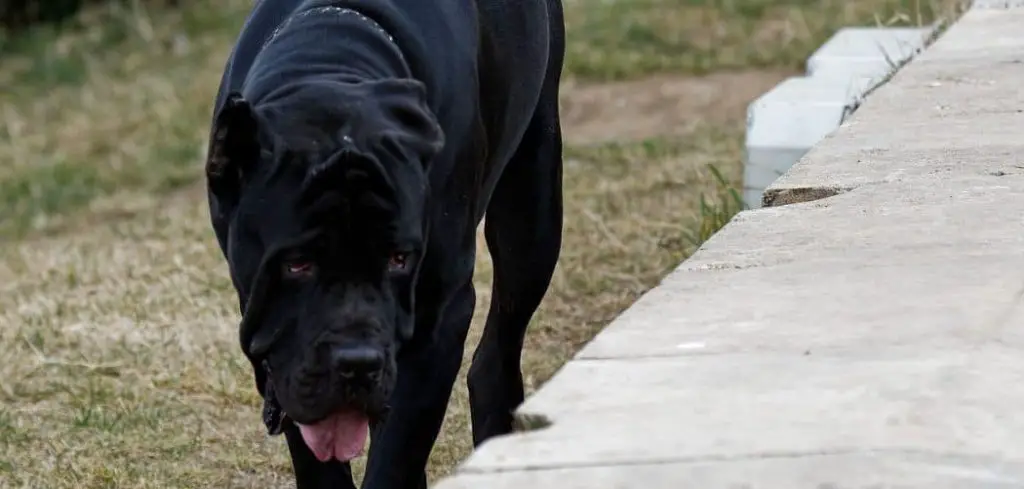When your dog starts licking excessively, it can be worrying and frustrating. While occasional licking is normal, persistent licking can be a sign of emotional or physical distress that needs attention.
We outline the common reasons why dog licking due to stress happens, what you can do at home, and when to seek veterinary help.
Dog Licking Due to Stress — Why It Happens
A dog licking due to stress can be triggered by a range of stress-related factors, from environmental changes to underlying health conditions. Anxiety, boredom, allergies, and even pain can lead a dog to lick themselves, objects, or even their owners excessively.
Licking can be self-soothing for dogs, releasing endorphins that temporarily calm them, but over time it can cause skin damage and infection.

Common Causes of Dog Licking Due to Stress
Separation Anxiety
Dogs with separation anxiety often lick excessively when left alone or anticipating their owner’s departure.
This repetitive behavior acts as a coping mechanism to relieve tension.
Owners might notice the licking focused on paws or legs, sometimes to the point of hair loss or skin irritation.
In severe cases, the skin may become red, raw, and prone to secondary infections.
Read more: Dog Peeing Due to Stress (Common Causes)
Environmental Changes
Moving to a new home, changes in household members, or even rearranging furniture can create stress for sensitive dogs.
Licking can become an outlet for their confusion and insecurity.
This stress response might be accompanied by pacing, whining, or hiding.
Over time, the licking can develop into a habitual behavior even after the initial stressor is gone.
Boredom and Lack of Stimulation
When dogs lack physical exercise or mental engagement, they can develop stress behaviors like excessive licking.
The act provides a form of entertainment and distraction from their under-stimulated environment.
Dogs left alone for long hours without toys, walks, or interaction are particularly prone to this.
Chronic boredom-induced licking can lead to hot spots and ongoing skin irritation.
Allergies and Skin Irritation
While primarily a physical trigger, allergies can also contribute to stress licking.
Itching caused by environmental allergens, food sensitivities, or flea bites can stress a dog, prompting more licking.
The cycle of itch and lick not only worsens skin irritation but can also cause psychological discomfort. The constant urge to lick can make dogs restless and anxious.
Pain or Discomfort
Pain from arthritis, injuries, or internal issues can trigger stress in dogs, and licking may focus on the area that hurts. This behavior is part instinct, part stress relief.
Sometimes the licking is misinterpreted as purely behavioral when it’s actually a physical health issue that’s stressing the dog. Identifying and addressing the root cause is crucial.
Past Trauma or Rescue Background
Rescue dogs with a history of neglect or abuse may exhibit chronic licking as a stress response.
Past negative experiences can make them more prone to anxiety in everyday situations.
Even minor changes, such as a new routine or unfamiliar visitors, can trigger this licking habit. Patience and consistent reassurance are key in these cases.
What to Do If Your Dog Is Licking Due to Stress
First, rule out any medical causes with your veterinarian. Once physical issues are addressed, focus on reducing stress through consistent routines and a calm environment.
Increase physical exercise and provide mentally stimulating activities like puzzle toys or training games. This can redirect your dog’s energy into healthier outlets.
Create safe spaces where your dog can retreat and relax, such as a quiet room or crate with a comfortable bed. Gentle music or white noise can also help.
Consider working with a certified dog trainer or behaviorist if the licking persists. For severe anxiety, your vet may recommend short-term anti-anxiety medications.
When to Call or Visit Your Vet
If your dog’s licking is causing open wounds, hair loss, or signs of infection like redness, swelling, or foul odor, veterinary care is needed immediately.
Seek prompt help if the licking is accompanied by other concerning symptoms such as limping, sudden behavior changes, loss of appetite, or lethargy.
Chronic licking that doesn’t improve with at-home adjustments should always be evaluated. Left untreated, it can become both a behavioral and medical problem.
Read more: Dog licking excessively (Here’s why)
Key Takeaway
Excessive dog licking due to stress is a sign that something in your pet’s life or health needs attention.
While it can be a coping mechanism, it often points to underlying anxiety, discomfort, or medical issues.
By addressing both the emotional and physical causes, you can help your dog feel more comfortable and break the cycle of stress licking.
Patience, consistency, and timely veterinary care are the keys to ensuring your dog’s well-being.
